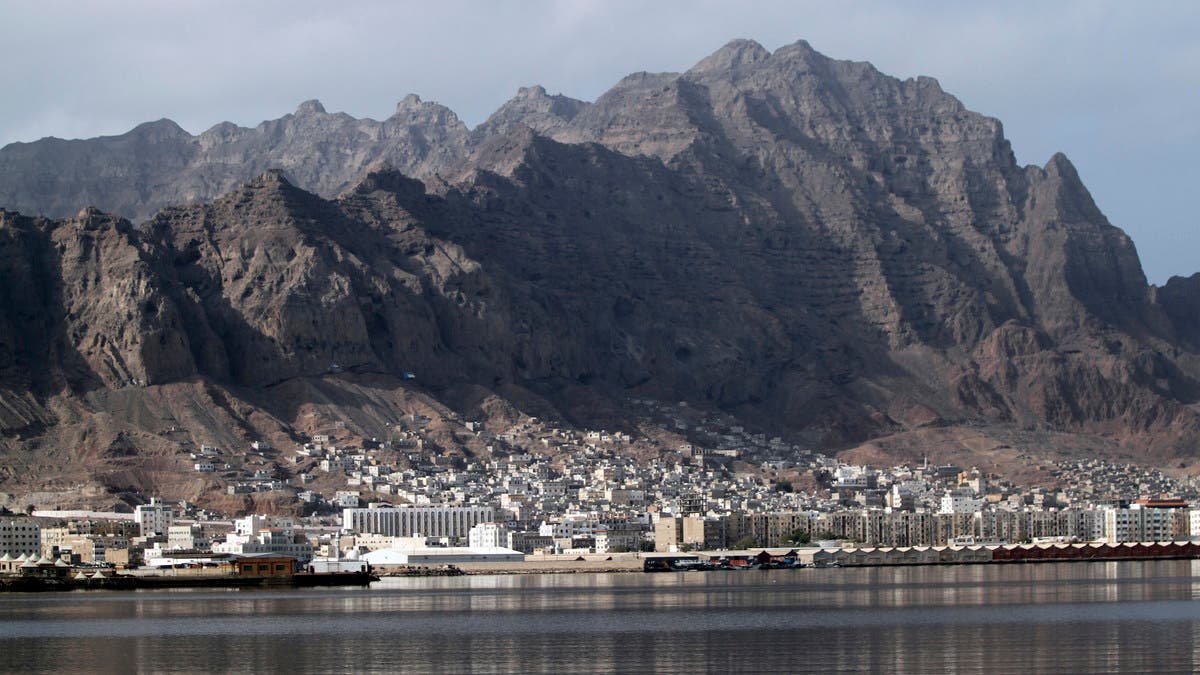For thousands of years, a network of aqueducts and basins helped Yemen’s port city of Aden cope with both floods and drought. Today, plastic bags, drinks cans and makeshift shacks clog the ancient channels.
For the latest headlines, follow our Google News channel online or via the app.
But as global warming fuels extreme weather in the climate-vulnerable nation, city officials say restoring the Tawila Cisterns to their former glory could help guarantee water supplies during dry spells and avert floods in the rainy season.
“I know my city’s history, and I want to bring that history to the present,” said Gelal Haykal, a 28-year-old member of the local council in the city’s flood-prone Crater districts, named for their location within a dormant volcano.
Since the 15th century BC, the Tawila Cisterns would channel rainwater through a series of locks, filling up a half-dozen tanks before spilling out into the sea, according to UN-Habitat, the United Nations’ settlements program.
The channels, made of volcanic ash waterproofed by stucco, zigzagged between the cragged ranges of volcanic rock, diverting rainwater away from the lowest-lying and oldest parts of Aden and saving residents from floods.
“It was genius,” Othman Abdulrahman, deputy head of Aden’s antiquities department, told the Thomson Reuters Foundation.
They also provided up to 20 million gallons (90 million litres) of accessible drinking water every year for Adenis – whose descendants now live in one of the most water-stressed countries in the world.
“People used to draw water from it,” said Abdulrahman pointing to a series of ledges and stairways carved within the basin that once let residents get closer to the water’s edge.
Nowadays, the channels are mostly blocked with garbage. Further down the hillside, informal settlements have mushroomed around the openings that let water into the Gulf of Aden.
That means some of the channels fill up partially and overflow, without filling up the basins.
“It’s painful for me to look at it like this,” said Abdulrahman.
‘We’re afraid’
Yemen, a country of 30 million people on the southwestern tip of the Arabian peninsula, faces two opposing consequences of climate change.
It is already one of the world’s most water-scarce countries – and desertification is making it much harder for millions of people to access safe drinking water.
But its coastal regions also suffer destructive flash floods.
In 2020, flash floods killed more than 170 people across the country. In 2021, two back-to-back floods affected thousands of Yemeni families – including in Aden.
Aden itself is the sixth-most vulnerable city in the world to sea-level rise and storm surges, according to a 2009 study by the Center for Global Development, a nonprofit think-tank.
The city’s natural harbor and oldest neighborhoods lie in the low-lying Crater districts.
Most of the residents are low-income families living in mud-brick homes, many of which disintegrated in the 2020 floods – including the two-story home where Faisal al-Shawqi’s family lived.
“It was a horrifying, terrifying day,” the 28-year-old said, recalling how the rainwater gushed into the house so fast it washed away the stairway linking to the upper floor, keeping his family stuck on the ground floor.
Flood-proofing their home or moving to a more elevated neighborhood needed cash that his family did not have.
As the spring flood season draws closer, Shawqi is jittery.
“We’re afraid and very nervous – my own house and all the houses around us are already falling apart,” he said.
Bring history back
UN-Habitat has renovated more than 100 flood-damaged homes and is installing storm-water networks to benefit another 15,000 Aden residents. It also sees potential in rehabilitating the city’s ancient water network.
“The Tawila Cisterns are considered one of the sustainable ways to cope with flood impacts,” said the agency’s country head, Wael al-Shhab.
The funding could prove tricky, however, he said.
Given the dire humanitarian situation in Yemen – where most families struggle to afford basic food items or healthcare after seven years of war – gathering donations for a longer-term infrastructure project might be challenging.
“Most of the donors think of food, medicine, and water as the main three challenges that they need to tackle in this humanitarian context of protracted armed conflicts and war,” said Shhab.
Mahmoud Bingaradi, the administrative head of the Crater districts, estimated that the Tawila Cisterns could be fully restored for $600,000.
Hayal, who works in Bingaradi’s team, said that was a small price to pay to potentially save his city.
“The floods are so sudden these days and there’s so much water,” he said. “We know how important this cistern system is.”
Read more:
US, Saudi free two US citizens from Houthi captivity in Yemen: State Department
Arab Coalition conducts 21 targeted strikes in Yemen against Iran-backed Houthis
Doctors Without Borders workers kidnapped in Yemen: Sources

 World3 years ago
World3 years ago
 World3 years ago
World3 years ago
 Business1 year ago
Business1 year ago
 Entertainment7 years ago
Entertainment7 years ago
 World7 years ago
World7 years ago
 Entertainment7 years ago
Entertainment7 years ago






